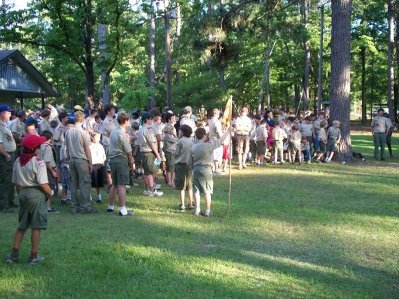 I know about as much about car transmissions as I do about clouds (which for some reason I never studied in school). I know it makes the car go, and if it ain’t working, your car won’t be going anywhere. At least, not in the manner to which you’re accustomed.
I know about as much about car transmissions as I do about clouds (which for some reason I never studied in school). I know it makes the car go, and if it ain’t working, your car won’t be going anywhere. At least, not in the manner to which you’re accustomed.
Now since I’m completely clueless, I’m also at the mercy of somebody who isn’t if something goes wrong with my car-goer. So when I need transmission service, that’s when I call the folks at A-1 Transmission.
(Ewww. Does this sound like a commercial or what?)
Seriously, this isn’t about transmission service. It’s about LifeVesting. And how a little transmission shop on 34th Street invested in my life in more ways than one.
A couple of months ago my wife reported that we had something major wrong with her vehicle. Sure enough, when I drove it, it jerked badly when it finally shifted gears, and when I would stop, it took forever to downshift back to first.
Ugh, I thought. Transmission.
But I did know who to call. I had gotten good service at A-1 in the past, and so I heaved and jerked over there one afternoon to show them I had a transmission problem.
Crazy thing was, he didn’t take my word for it. Can’t imagine why.
“Let’s go for a ride,” he said, and asked for the keys.
We drove through the neighborhoods of central Lubbock and it didn’t take the expert long to arrive at a diagnosis. [click to continue…]
 Doc Johns wasn’t a doctor; he was a pharmacist. But ever since Bo Brannon ripped his eyelid on a pretty mean briar while playing Capture the Flag at night on an old lake bed and proceeded to bleed like a stuck pig, Marion J. Johns became known to us as “Doc.” As Bo was howling at the invisible moon, sure that life as he knew it was over, somebody in the Boy Scout troop said, “Let’s take him to Jeff’s dad… he’s a doctor!”
Doc Johns wasn’t a doctor; he was a pharmacist. But ever since Bo Brannon ripped his eyelid on a pretty mean briar while playing Capture the Flag at night on an old lake bed and proceeded to bleed like a stuck pig, Marion J. Johns became known to us as “Doc.” As Bo was howling at the invisible moon, sure that life as he knew it was over, somebody in the Boy Scout troop said, “Let’s take him to Jeff’s dad… he’s a doctor!”
So Doc it was. Bo lived; his gaping wound by night was just a pretty ugly scratch by day. And Doc Johns – then the Assistant Scoutmaster, had a new name. [click to continue…]
 One of our inside family jokes has to do with a certain child of ours who had the hardest time simply apologizing or admitting she was wrong.
One of our inside family jokes has to do with a certain child of ours who had the hardest time simply apologizing or admitting she was wrong.
(This same child, as a two-year-old, used to wear a t-shirt with the picture of a well-known TV character who had a similar problem. The most he could ever do was say, in his coolness, “I was wr-r-r-r-r.” I wonder if the t-shirt rubbed off somehow.)
Anyway, the conversations would go something like this:
“You need to tell her/him you’re sorry.”
“But I didn’t mean to.”
“It doesn’t matter – you did it. Say you’re sorry.”
“But I didn’t mean to.”
“But you did it.”
“It’s not my fault.”
“SAY IT!”
“I DIDN’T MEAN TO!”
Where Could She POSSIBLY Learn Something Like That?
To this day, we haven’t really understood what a simple apology symbolized to this child, but she wasn’t buyin’. But let’s face it. We all come by our reluctance to admit fault pretty honestly. [click to continue…]
 Two posts ago I started sharing what we’re learning about being instruments of healing to people in the “Land of Nod” – the realm of the aftermath of broken relationships. It was to this place that Cain went after he had killed his brother and rejected the mercy of God.
Two posts ago I started sharing what we’re learning about being instruments of healing to people in the “Land of Nod” – the realm of the aftermath of broken relationships. It was to this place that Cain went after he had killed his brother and rejected the mercy of God.
To bring hope to the Land of Nod, we must:
1. Reconnect the spiritual with the interpersonal.
You relate to people in the same way you relate to God, and vice-versa. We must be faithful to live that message, and communicate it well to others.
2. Expose anger for what it is, and provide a model for forgiveness.
Anger is always a choice; so is forgiveness. To help the Nodians, we must encourage them to accept responsibility for their anger and guide them toward forgiveness.
The third thing we are learning to do to bring hope back to Nod is:
3. Respond to Victimhood by Redefining Responsibility
Week in and week out, people pass through our doors carrying a past that neither they nor we can change. [click to continue…]
 It was one of the most significant turning points in Israel’s history. A day when elders behaved like spoiled children – deciding what they wanted, then fitting the problem to their solution. A day that set their course for hundreds of years. An event that, prompted by fear and ambition, abandoned the character and calling of a nation. And yet, compared to other great events in the family-nation’s remarkable history, this day is seldom remembered.
It was one of the most significant turning points in Israel’s history. A day when elders behaved like spoiled children – deciding what they wanted, then fitting the problem to their solution. A day that set their course for hundreds of years. An event that, prompted by fear and ambition, abandoned the character and calling of a nation. And yet, compared to other great events in the family-nation’s remarkable history, this day is seldom remembered.
In a time when influence was wielded by men and women who knew and walked with God, Israel’s leaders wanted more.
They wanted to be like everybody else.
“Give us a king,” they said.
Samuel didn’t like it, and took it personally. “Relax,” God says. “They’re rejecting Me, not you. But now you know how I feel.”
Human nature tends to swing between two extremes:
[click to continue…]
 I know about as much about car transmissions as I do about clouds (which for some reason I never studied in school). I know it makes the car go, and if it ain’t working, your car won’t be going anywhere. At least, not in the manner to which you’re accustomed.
I know about as much about car transmissions as I do about clouds (which for some reason I never studied in school). I know it makes the car go, and if it ain’t working, your car won’t be going anywhere. At least, not in the manner to which you’re accustomed. Doc Johns wasn’t a doctor; he was a pharmacist. But ever since Bo Brannon ripped his eyelid on a pretty mean briar while playing Capture the Flag at night on an old lake bed and proceeded to bleed like a stuck pig, Marion J. Johns became known to us as “Doc.” As Bo was howling at the invisible moon, sure that life as he knew it was over, somebody in the Boy Scout troop said, “Let’s take him to Jeff’s dad… he’s a doctor!”
Doc Johns wasn’t a doctor; he was a pharmacist. But ever since Bo Brannon ripped his eyelid on a pretty mean briar while playing Capture the Flag at night on an old lake bed and proceeded to bleed like a stuck pig, Marion J. Johns became known to us as “Doc.” As Bo was howling at the invisible moon, sure that life as he knew it was over, somebody in the Boy Scout troop said, “Let’s take him to Jeff’s dad… he’s a doctor!” One of our inside family jokes has to do with a certain child of ours who had the hardest time simply apologizing or admitting she was wrong.
One of our inside family jokes has to do with a certain child of ours who had the hardest time simply apologizing or admitting she was wrong. Two posts ago I started sharing what we’re learning about being instruments of healing to people in the “Land of Nod” – the realm of the aftermath of broken relationships. It was to this place that Cain went after he had killed his brother and rejected the mercy of God.
Two posts ago I started sharing what we’re learning about being instruments of healing to people in the “Land of Nod” – the realm of the aftermath of broken relationships. It was to this place that Cain went after he had killed his brother and rejected the mercy of God.